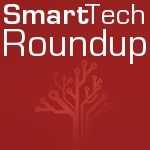SMARTtech Roundup

Blended Schools & Tools
Fuse Boost. Houghton Mifflin Harcourt announced that the results from a year-long pilot of their Algebra Curriculum for iPad stimulated a near 10 percent boost in Math scores. The HMH Fuse platform encourages the use of personalized lesson plans by combining direct instruction, ongoing support, assessment and intervention in one easy-to-use suite of tools.
MUSD20+1. Maricopa County AZ kicked off a blended learning school pilot where teachers will monitor the students and pull small groups to help enrich and remediate in two other project rooms or three traditional classrooms to supplement the online material.
K-Blends. Everyone’s talking about blended learning coming to Kindergarten with tools from Compass Learning, iStation, and more. Slate notes that “Online education for elementary schoolers doesn’t mean kids will sit alone in front of a screen all day.”
Rural solutions. In West Virginia, schools will adopt electronic textbooks for social studies classes beginning in the 2013-14 academic year due to a new state mandate.
Reallocating and reinvesting. T.H.E Journal featured a comprehensive piece on Affording the Classroom of the Future, sharing the perspectives of many educators at various degrees of technology integration and implementation – ranging from reallocation of dollars and physical space and investment priorities in teacher training over devices.
Digital Developments
YouthTruth. Tufts University’s Center for Information & Learning on Research & Civic Engagement (CIRCLE), announced the roll-out of an “online hub,” serving as a portal for a variety of young voter related information, for their newly-launched YouthTruth campaign. Last week, CIRCLE launched a public awareness and education campaign, YouthTruth, designed to dispel myths about the civic engagement of young Americans, particularly during this 2012 presidential election.
College and career ready mandate. Virginia joins the growing ranks of states requiring an online course for graduation. Digital Learning Now recommends the requirement because most students will do at least some of the learning online after high school in the military, on the job, and in post-secondary institutions.
BBC on ebooks. The UK’s biggest book retailer Amazon now sells more ebooks than hardbacks and paperbacks combined. For every 100 print books sold through the site, Amazon said it sold 114 titles for its Kindle e-reader device.
Bluegrass Commitment. Kentucky lawmakers are exploring how the state can improve digital learning across the state. The General Assembly has formed a task force to review possible legislative changes that encourage technology integration in schools. This builds on an OpenEd facilitated digital learning plan.
A new revolution. GSV Advisors has released a new white paper focusing on critical issues in the ed sector. The paper, American Revolution 2.0: How Education Innovation is Going to Revitalize America and Transform the U.S. Economy, is available now for download.
Grandparents and GBL? This week Slate asked Can Video Games Unite Generations in Learning? The answer is an enthusiastic “yes,” citing new research on intergenerational game play and lessons from the evolution of children’s television.
Steamy STEM Gems
Tenn-ovation. A cohort of new STEM schools are opening across Tennessee thanks to the Tennessee STEM Innovation Network, a partnership between the Tennessee Department of Education and Battelle Memorial Institute.
Building big ideas. Young STEM stars shined at the 2012 Lego Education Learning Summit, including two teenage female inventors whose big ideas have hit the White House and International Space Station.
Addressing gaps. Hajj Felmings shared three ways that the Initiative on Educational Excellence for African Americans will impact STEM Education, including earlier exposure to STEM learning, a shift from consumers to producers, and growth in STEM career representation.
Getting to the Core
Cool CC Tool. Archipelago Learning, a PLATO Learning company, expanded the activities offered in EducationCity, an online teaching and learning resource mapped to individual state academic standards in math and science. EducationCity is adding over 100 new Kindergarten through second grade activities aligned to the Common Core State Standards.
Lauding LAUSD. Los Angeles Unified School District, the nation’s second largest will begin phasing in the Common Core standards during this upcoming school year.
Come On Get App-y
Toddler Tablet. Frustrated parent Dan Yang created first kid-centric app library – the next logical step following the launch of its VINCI Early Learning System and VINCI tablets (library coming soon to other android devices) tailored towards ages 18 months to 9 years old.
Yummy. MindSnacks announced that it has raised $6.5 million from Sequoia Capital. Their portfolio of language-specific apps has since grown to 14, including Spanish, Mandarin, and SAT vocabulary with over four million downloads to date.
Smarty Britches. Arkansas teacher Cyndie Sebourn created an educational storybook app targeted to first- through third-graders that teaches kids about nouns, using an Arkansas-based tale that includes 24 pages of story and illustrations, interactive activities, sound sprites, animation and a lead character by the name of “Smarty Britches.”
Higher, Deeper, Further, Faster Learning
Guided by science. Kaplan CAO Bror Saxberg educated us on what learning sciences tell us about competency education this week on iNACOL’s Competency Works blog.
Teacher Ed goes online. A USA TODAY analysis of Department of Education data finds that four big universities, operating mostly online, have quickly become the largest education schools in the nation. Last year the top four awarded one in 16 bachelor’s degrees and nearly one in 11 master’s degrees and doctorates.
Blending in Kansas. As Kansas University continues to build its online course offerings, many faculty members are moving toward more “hybrid” courses, combining online and in-class work.
Kentucky is ahead of the competency curve. Inside HigherEd featured a competency-based online community college program in Kentucky. “Learn on Demand” offering online courses three years ago – meeting the needs of rural students and working adults across Kentucky. Students can enroll whenever they want, and they are not limited to class schedules or assignment deadlines in the self-paced courses.
Expanded education marketplace. Skillshare, which calls itself a “marketplace” for education, has more than 5,000 instructors who teach a variety of subjects. Since launching last April, the startup’s courses have been held offline and in person. However, the company announced this week that it is making classes available online.
Building a better transcript. A startup called Seelio is opened access to anyone with a .edu email address. The company, which spun out of TruApp wants to offer college students a better way to showcase their work via online portfolios. Programs like Seelio and Pathbrite are an important signal that students believe their transcripts should reflect more than course completions and credit hours. We agree.
MOOC Maven. This week Smart Planet brought us Three Reasons Why Higher Education Should Be Online and Free, citing Coursera co-founder Dr. Daphne Koller’s TedTalk: MOOCs provide opportunities for all, yield loads of data that can advance learning, and provide digital interaction to master material.
Compass Learning is a Getting Smart Advocacy Partner. Tom is CEO of OpenEd.




0 Comments
Leave a Comment
Your email address will not be published. All fields are required.